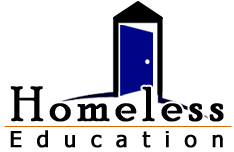McKinney-Vento Program (MVP) Homeless Education

The School District of DeSoto County and the district's McKinney-Vento Homeless Education Program (MVP) are dedicated to removing barriers for school enrollment and providing support for the academic success of students whose families are experiencing homelessness or housing transition.
McKinney-Vento (MVP) Homeless Education Program District Contacts:
Kathy Severson, Homeless Liaison (863) 993-1333 Ext. 305
Beth Bryan, Homeless Advocate (863) 993-1333 Ext. 316
McKinney-Vento (MVP) Homeless Education Program School Contacts:
DeSoto High School, Alma Cendejas, Guidance Secretary (863)494-3434
DeSoto Middle School, Barbara Galloway, Guidance Counselor (863) 494-4133
DeSoto Middle School, Rebecca Keller, Guidance Counselor (863) 494-4133
Memorial Elementary School, Lisa Vondach, Guidance Counselor (863) 494-2736
Nocatee Elementary School, Cari Hooper, Guidance Counselor (863) 494-4511
West Elementary School, Donna Roberts, Guidance Counselor (863) 494-3155
DeSoto Secondary School, Ibis Jimenez, Receptionist (863) 494-9303
State of Florida Homeless Coordinator
Courtney Walker (850) 245-0089 Email: [email protected]
Our goal is to provide hope for the future to ensure each student has the opportunity for quality education and to form school and community partnerships to strengthen family and student stability.

The McKinney-Vento Act is included in the Every Student Succeeds Act (ESSA) of 2015. The McKinney-Vento Act requires that children and youths experiencing homelessness are immediately enrolled in school and have educational opportunities equal to those of their non-homeless peers. The statute requires that every public school district to designate a Homeless Liaison to ensure that homeless students are identified and their needs are being met.

The McKinney-Vento Act defines homeless children as "individuals who lack a fixed, regular, and adequate nighttime residence." The act provides examples of children who would fall under this definition:
- Children and youth sharing housing due to loss of housing, economic hardship or a similar reason
- Children and youth living in motels, hotels, trailer parks, or camp grounds due to lack of alternative accommodations
- Children and youth living in emergency or transitional shelters
- Children and youth abandoned in hospitals
- Children and youth whose primary nighttime residence is not ordinarily used as a regular sleeping accommodation (e.g., park benches, etc.)
- Children and youth living in cars, parks, public spaces, abandoned buildings, substandard housing, bus or train stations
- Migratory children and youth living in any of the above situations
Homeless students may have the right to:
Enroll in school without proof of residency, immunization, school records, or other documents
Choose between the local school where they are living or the school last attended
Receive transportation to school
Attend school and receive all school services available to non-homeless students
Eligibility for the HEP is determined by the school district Homeless Liaison and HEP staff and must be renewed each school year. Referrals can be made by calling your child's school or the HEP office, or by completing a Student Residency Form found at the link below. Forms are also available at your child's school office.

